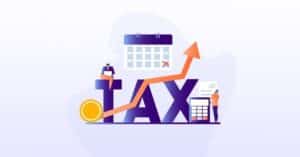Why does mastering restaurant bookkeeping matter?
A restaurant owner handles many tasks simultaneously, such as serving fresh food while maintaining a good attitude. The sleepless nights of an owner can be challenging. According to a survey, it was found that 72% of restaurant owners may feel overwhelmed by finances; hence, Bookkeeping comes into the picture.
Mastering of bookkeeping matters due to the following reasons:
- It provides financial clarity and control to the restaurant owners.
- A business owner can understand and meet the requirements for legal protection, as poor Bookkeeping may cripple your business.
- It assures the growth of the business over the years by securing funding and attracting investors.
- A professional bookkeeper can also help you in maintaining your financial literacy.
The basics of restaurant Bookkeeping

Restaurant bookkeeping is a process involving the tracking, recording, and analyzation analysis of the financial transactions related to the functioning of your business. The main scope of restaurant bookkeeping involves recording daily sales, catering fees, expenses, inventory management, cash flow morning, expenses management, etc.
This process involves analyzing strategic decision-making, which differs from simple Bookkeeping. Additionally, the booking helps you control your finances, achieve your goals and ensure the success of your restaurant.
Setting up a Restaurant bookkeeping system
- Selection of the right software for your business can be a crucial process. Here are some key factors that you can consider.
- Have a close look at your budget.
- Choose a software according to your understanding of technology.
- Ensure your software is compatible with other POS or point-of-sale and payroll software.
- Look mindfully for restaurant-specific features such as inventory management and recipe costing.
- Choose a software that can ensure scalability for your business.
Popular options and their features.
Some of the popular options that you can consider are:
- QuickBooks Online has a user-friendly interface and is an affordable option.
- Wave is another option you can try, as the software provides a free basic plan to cater to the requirements.
Considerations for restaurant-specific software
Some of the factors to consider are:
- Scalability
- Good reporting tools
- Should be able to track labor cost
- Recipe costing calculations
- Inventory management
Creating a chart of accounts for restaurants
A chart of accounts can categorize your income and expenses for easy tracking and reporting. Some of the main categories are:
- Revenue categories include food sales, tips, and other incomes.
- Expenses categories include beverage costs, payroll, marketing and advertising.
- Importance of regular data entry
- Entering the transactions on a regular basis ensures that accurate financial records are made. This allows the timely management of reporting, cash flow and identification of potential issues.
Daily Bookkeeping Tasks for restaurants
A. Sales Recording and Tracking
1) Point of sale system integration
Your POS system is crucial to maintaining accurate sales records, so choose a design that integrates with your accounting software to automate the data entry and reduce errors.
2) Handling of tips and taxes.Accurate tip reporting is required to comply with local regulations. You should maintain a proper sales record, including taxable and non-taxable items.
B. Expense Tracking and Receipt Management
1) Supplier Invoices and receipts 
- Strelaimned process
- Accurate capturing of data
- Utilization consistent payment methods
2) Managing staff Expenses
- Formulation of clear expense policy
- Utilization is an expense reporting system that allows staff to claim the receipts and track the approval status.
- Renew and approval systems.
- Monthly and Quarterly Financial Analysis
C. Profit and Loss Statements
1. Analyzing revenue Trends
- It involves tracking key metrics such as overall sales, average order value and customer traffic.
- In this, the identification of trends, seasonality and impact of marketing campaigns is required.
- Analyzation the sales by period and locations.
2) Identifying Cost Variances
- It involves tracking metrics such as food costs percentage, labour costs and prime costs.
- Comparison between the actual costs and budgets.
- Investigation and address of the variances to analyze the deviations.
D. Balance sheets for Restaurant Business
1. Asset and Liability Management
- It involves the tracking of critical assets
- Management of liabilities
- Optimization of asset utilization negotiation of favorable terms with suppliers
2. Evaluating Financial Stability
- It improves financial forgetting using historical data.
- Creation of realistic budget goals for both revenue and expenses
- Nechman Ring for the comparison of performance to industry benchmarks.
- Managing Payroll In Restaurant Bookkeeping
E. Employee Wages and Benefit
1) Calculating Overtime and tips
It involves calculating Overtime and tips by understanding the federal and state time regulations, determining tip policy, tracking reported recommendations through records, etc.
2) Compliance with labor laws
It involves areas such as minimum wages, recordkeeping and adhering to the regulations of child labour laws.
F. Payroll Taxes and Reporting
1) Tax Withholdings
This area includes federal income tax compliance and local and state income rules being accrued to the requirement of the jurisdiction.
2) Reporting to Tax Authorities
One should submit the quarterly payroll returns on tax to the IRS and state or local agencies. Issuing W2 forms to employees and 1099 forms to vendors and contractors is also essential.
Inventory control and Bookkeeping
Inventory and Bookkeeping are essential to keep the restaurants thriving even in challenges. Proper management of inventory ensures that one has the right ingredients at the right time to minimize waste. Hence, accurate Bookkeeping helps track every penny, providing insights into performance and making informed decisions.
Budgeting for Restaurants
Budgeting is one of the most essential activities for a restaurant that helps its ever-changing trends. A proper budget is required based on industry benchmarks, historical data and projected sales. Key components should include:
- Revenue streams
- Indirect costs calculation
- Direct costs facts
Read more























